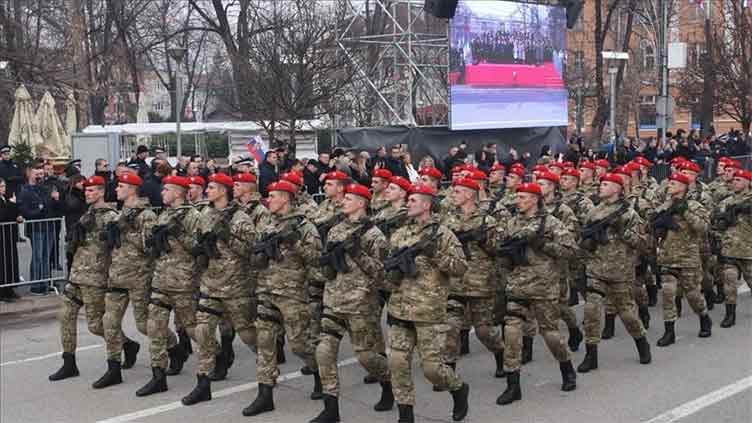Bosnian Serbs celebrate banned statehood day despite warnings

World
Bosnian Serbs celebrate banned statehood day despite warnings
BANJA LUKA, Bosnia (Reuters) - Bosnian Serbs celebrated their autonomous region's statehood day on Tuesday with a parade of special forces and armoured vehicles in defiance of a top court ban and warnings from Western overseers of Bosnia's troubled peace.
Jan. 9 marks the date in 1992 when Bosnian Serbs declared independence as then-federal Yugoslavia broke up, triggering a 3-1/2-year war in which 100,000 people were killed and two million made homeless, most of them Bosnian Muslims.
Since Jan. 9 coincides with a Serbian Orthodox Christian holiday, Bosnia's Constitutional Court has twice declared it illegal, ruling it discriminated against the region's Catholic Croat and Muslim Bosniak communities.
But the Serb Republic, which along with the Bosniak-Croat Federation comprises largely decentralised post-war Bosnia under the 1995 Dayton peace accords, was undeterred and has continued to mark the nationalist-minded holiday.
In freezing cold, about 3,400 police officers, wartime veterans and civilians marched along the streets of the region´s de facto capital Banja Luka, many bussed in from other towns.
"These people have the right to mark their Republic Day in this way, and we shall continue to do that," Serb Republic (RS) President Milorad Dodik said, addressing the parade. "Anyone trying to ban it will not succeed."
The annual RS nationalist rite underlines deep ethnic and political divisions in the Balkan country, whose post-war progress has been held hostage by a lack of reconciliation and Dodik´s repeated secessionist threats.
International organisations, including the mission of the Organisation for Security and Cooperation in Europe (OSCE), the office of the International High Representative and the U.S. and British embassies have all warned that staging the statehood day constitutes a criminal offence against the high court´s ruling.


